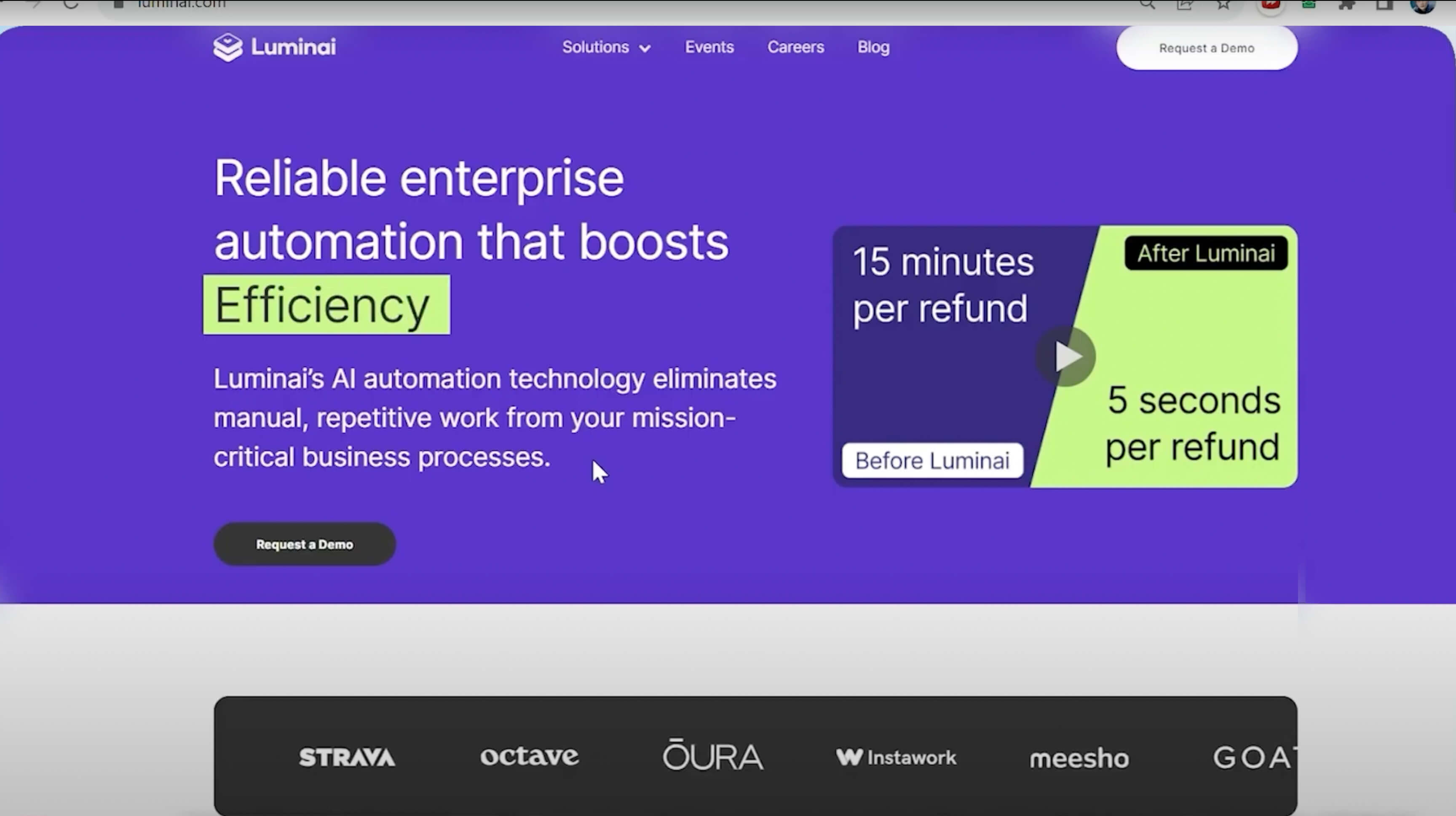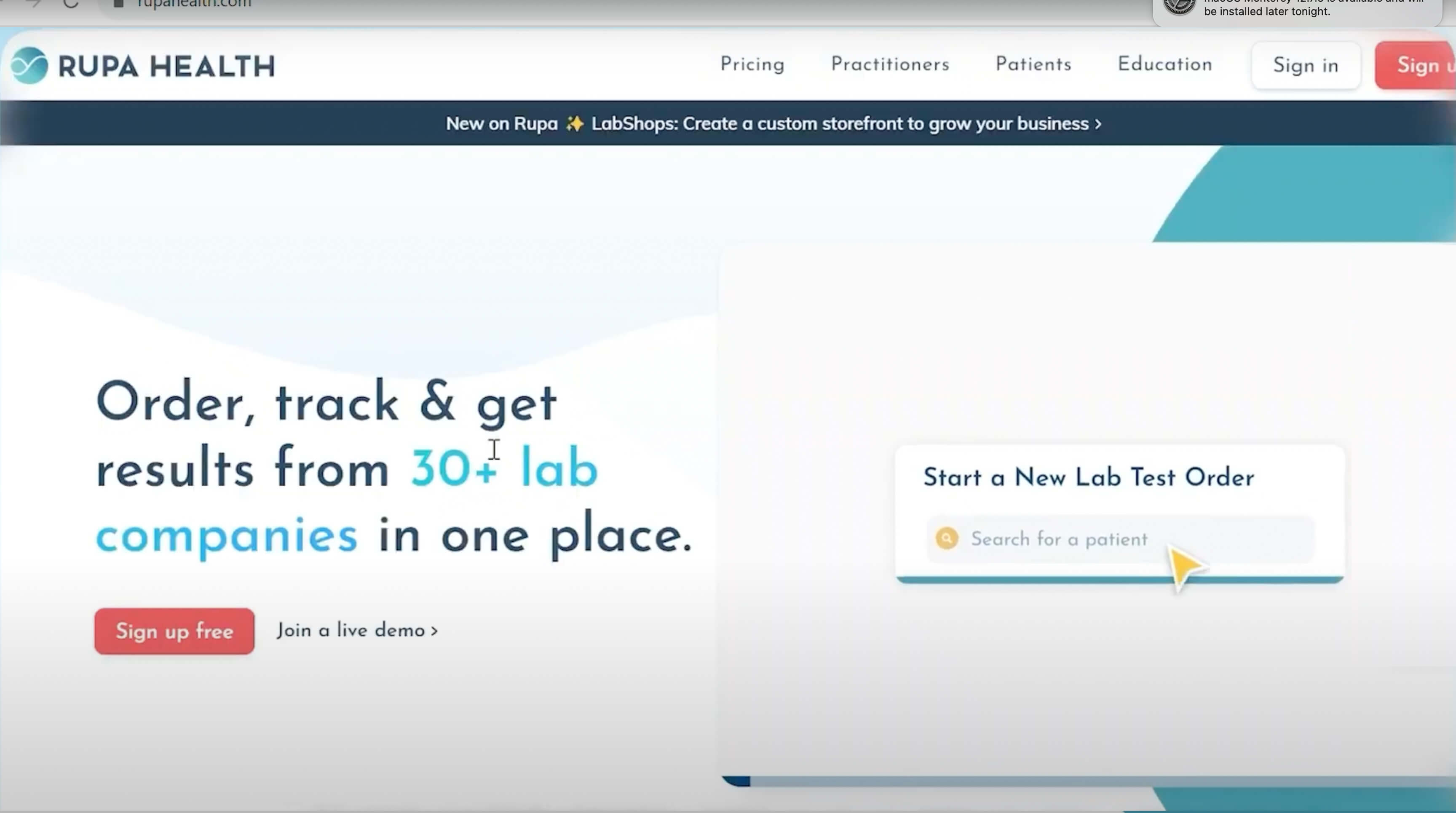Part 14: Product Market Fit
Part 14: Product Market Fit
Product market fit
Here are some case studies on finding product market fit:
Luminai is an automation platform that helps customer support reps save time.

The first iteration was a simplified user interface for Zendesk, that included keyboard shortcuts.
The response to this was lukewarm.
People were willing to try it, but it really wasn’t a painful enough problem.
They then pivoted to a full customer support automation,
where, with the click of the button, customer support rep can issue a refund,
and Luminai will go into Stripe process the credit card refund.
It will go to FedEx and lodge a return slip, that is then emailed to the customer.
And then it’ll go into the accounting system to log the refund and reconcile the accounts,
saving the customer support rep up to 15 minutes of time.
Those was an overwhelming response to this.
Users signed up and paid thousands of dollars for the product before it was even built.
It was complete night and day, compared to the first product.
Off of this Luminai managed to raise $20 million in venture funding.
Here’s another case study:
Rupa health started as a platform to find holistic doctors like naturopaths chiropractors and Chinese herbal medicine doctors.

However after one year that had very little traction.
They learnt that when you’re trying to find a holistic doctor, it’s usually done via word of mouth because it’s a high trust situation.
You also stay with the same doctor.
Unlike most marketplaces like Airbnb, for example, where you’re coming back to the platform again and again,
with holistic medicine, you’re usually just looking for one special doctor.
So an adjacent problem that Rupa learnt about in user interviews with doctors is that:
holistic doctors find it very difficult to order lab tests.
There are hundreds of health tests for patients. And dozens of labs. Doctors are confused about where to go.
So Rupa launched a lab testing platform where holistic doctors can order all the specialty tests in one place.
The demand was overwhelming. Doctors wanted to use the product before it was even ready.
In fact, they had to rush the launch date because doctors were depending on the platform to be ready in order to launch their clinics.
Product market fit
Here are some case studies on finding product market fit:
Luminai is an automation platform that helps customer support reps save time.

The first iteration was a simplified user interface for Zendesk, that included keyboard shortcuts.
The response to this was lukewarm.
People were willing to try it, but it really wasn’t a painful enough problem.
They then pivoted to a full customer support automation,
where, with the click of the button, customer support rep can issue a refund,
and Luminai will go into Stripe process the credit card refund.
It will go to FedEx and lodge a return slip, that is then emailed to the customer.
And then it’ll go into the accounting system to log the refund and reconcile the accounts,
saving the customer support rep up to 15 minutes of time.
Those was an overwhelming response to this.
Users signed up and paid thousands of dollars for the product before it was even built.
It was complete night and day, compared to the first product.
Off of this Luminai managed to raise $20 million in venture funding.
Here’s another case study:
Rupa health started as a platform to find holistic doctors like naturopaths chiropractors and Chinese herbal medicine doctors.

However after one year that had very little traction.
They learnt that when you’re trying to find a holistic doctor, it’s usually done via word of mouth because it’s a high trust situation.
You also stay with the same doctor.
Unlike most marketplaces like Airbnb, for example, where you’re coming back to the platform again and again,
with holistic medicine, you’re usually just looking for one special doctor.
So an adjacent problem that Rupa learnt about in user interviews with doctors is that:
holistic doctors find it very difficult to order lab tests.
There are hundreds of health tests for patients. And dozens of labs. Doctors are confused about where to go.
So Rupa launched a lab testing platform where holistic doctors can order all the specialty tests in one place.
The demand was overwhelming. Doctors wanted to use the product before it was even ready.
In fact, they had to rush the launch date because doctors were depending on the platform to be ready in order to launch their clinics.
